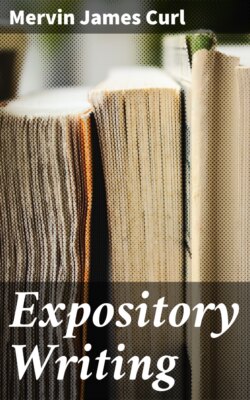Читать книгу Expository Writing - Mervin James Curl - Страница 17
На сайте Литреса книга снята с продажи.
Selection of Material
ОглавлениеThe first question is, What, and how many, forces shall I choose for the attack? Remember, we do not now merely attack in general, wherever we find an enemy. Instead, we decide that our objective is, perhaps, a hill ten miles across the enemy's frontier. The taking of that hill is our controlling purpose. It would be easiest for us to use several regiments of fresh young troops. But the terrain is strewn with gullies and hillocks, with boulders and tangled timber. So we shall use two regiments of veteran troops who are accustomed to rough country, and follow these with some fresh youngsters who are endowed with sense and a desire to outdo the veterans. Since the enemy has a strong battery, we shall use heavy artillery. And since the enemy lacks machine guns, we shall use many of them and catch him where he is weak and may be terrified. We could easily send thirty camp kitchens to the fighting lines, but strategy demands that they be kept back.
In exactly the same way Mr. Burroughs plans the essay which follows this discussion. His controlling purpose is obviously to make the reader understand the process of bee-hunting in such a way as to be attracted to it as a delightful sport. The nature of the subject demands that the several steps in the process be explained. Well, that suits Mr. Burroughs, because he knows these steps. The easiest method for him is to narrate his own experiences. Of course he could investigate the authorities on bee-hunting, and write a treatise, but that would be more difficult, and moreover, it would not meet the line of least resistance from the reader. To be successful, the essay must overcome the reader's inertia and make him feel that he is actually sharing in things that he enjoys. The selection is thus determined. From his personal experience, as giving the writer the greatest advantage, Mr. Burroughs chooses. He selects details about the beauty of nature because a reader would prefer to have fine surroundings. He mentions traits of the bee that are interesting or necessary to know. He narrates two special experiences of his own for added attractiveness. And all the while, lest inertia raise its head, he lures the reader with the glimpses of pails full of rich golden honey. In other words, keeping his eye for his controlling purpose, Mr. Burroughs can easily select the things that will accomplish that purpose to his own greatest advantage, the reader's greatest ease, and according to the demands of the subject.
You do not find in the essay a discussion of the lucrative value of bees, nor of the complicated life of the hive, nor of the present standing of the science of bee-keeping. These topics, however interesting, are not useful to the controlling purpose. The standard is, not connection, but usefulness. "Any road," says Carlyle, "this simple Entepfuhl road, will lead you to the end of the world," and if you follow mere connection with your subjects, you will find yourself at the end of the world. The practical helpfulness of the controlling purpose is seen when you ask yourself the question, "Does the matter that I am putting in this paragraph, this sentence, actually advance my reader in thought or emotion or both, nearer the point to which I wish to lead him?" Thus the question of selection is answered.
